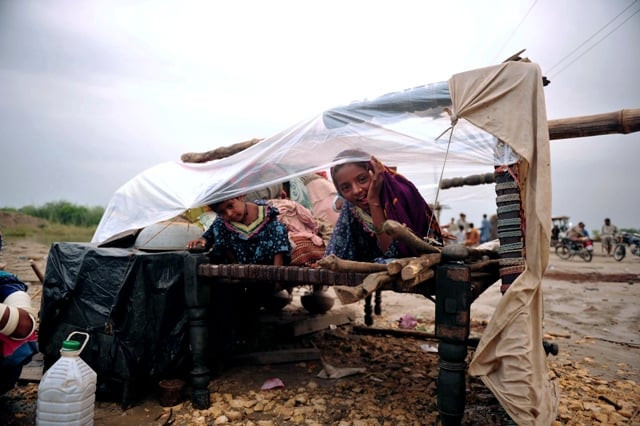Transmission zone: Tharparkar at risk of malaria outbreak
Officials claim there is no need to panic as the situation is under control.

According to the Sindh Malaria Control Programme, they are worried enough to dispatch teams immediately. However, strangely enough, when asked what it was doing in Tharparkar, Sindh health department officials claimed that although there was an outbreak, there was no need to panic.
One official explained that after the floods a lot of water had accumulated in different areas, forcing people to constantly be on the move. Tharparkar, however, is considered a ‘high-risk transmission zone’ as the district has several man-made wells used to store drinking water. These wells usually become a breeding ground for mosquitoes.
Sindh Malaria Control Programme director Dr Nahid Jamali told The Express Tribune that there was no doubt that malaria cases were on the rise in the province. She added that aggressive fumigation had helped kill mosquitos and control the spread of the disease.
On the other hand, the chairperson of the Infection Control Committee at the Aga Khan University Hospital (AKUH), Dr Bushra Jamil, said that the situation in the cities was quite bad. She added that in order to stop the spread of the disease it was very important to create awareness and educate people. “Resurgence of the virus constitutes at least 15 to 20 per cent cases as it [the virus] remains untraced in the liver,” she said. “Certain agents used to treat the disease, in order to eradicate it from the liver are often not used in endemic cases which may lead to a reoccurrence.”
A doctor from a private hospital said that they were unable to control the malaria problem every year because they did not have qualified professionals who could assess the situation or take preventive measures.
Funding and malaria
The lack of available funds has also caused hiccups in delivering medical aid. According to the spokesperson for the Office Coordination Humanitarian Affairs (OCHA) Stacey Winston, of the $357 million requested so far only $43 million were collected. “This is very inadequate for the needs of 5.4 million people across Sindh and Balochistan,” she said.
The money collected by OCHA is primarily used for water, food, healthcare and sanitation.
Published in The Express Tribune, October 7th, 2011.



















COMMENTS
Comments are moderated and generally will be posted if they are on-topic and not abusive.
For more information, please see our Comments FAQ